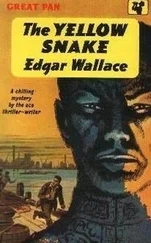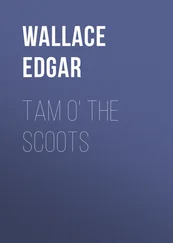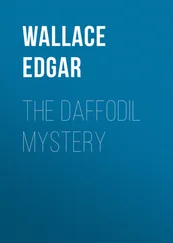Edgar Wallace - Sanders of the River
Здесь есть возможность читать онлайн «Edgar Wallace - Sanders of the River» — ознакомительный отрывок электронной книги совершенно бесплатно, а после прочтения отрывка купить полную версию. В некоторых случаях можно слушать аудио, скачать через торрент в формате fb2 и присутствует краткое содержание. Жанр: foreign_prose, на английском языке. Описание произведения, (предисловие) а так же отзывы посетителей доступны на портале библиотеки ЛибКат.
- Название:Sanders of the River
- Автор:
- Жанр:
- Год:неизвестен
- ISBN:нет данных
- Рейтинг книги:4 / 5. Голосов: 1
-
Избранное:Добавить в избранное
- Отзывы:
-
Ваша оценка:
- 80
- 1
- 2
- 3
- 4
- 5
Sanders of the River: краткое содержание, описание и аннотация
Предлагаем к чтению аннотацию, описание, краткое содержание или предисловие (зависит от того, что написал сам автор книги «Sanders of the River»). Если вы не нашли необходимую информацию о книге — напишите в комментариях, мы постараемся отыскать её.
Sanders of the River — читать онлайн ознакомительный отрывок
Ниже представлен текст книги, разбитый по страницам. Система сохранения места последней прочитанной страницы, позволяет с удобством читать онлайн бесплатно книгу «Sanders of the River», без необходимости каждый раз заново искать на чём Вы остановились. Поставьте закладку, и сможете в любой момент перейти на страницу, на которой закончили чтение.
Интервал:
Закладка:
Wallace Edgar
Sanders of the River
CHAPTER I
THE EDUCATION OF THE KING
Mr. Commissioner Sanders had graduated to West Central Africa by such easy stages that he did not realise when his acquaintance with the back lands began. Long before he was called upon by the British Government to keep a watchful eye upon some quarter of a million cannibal folk, who ten years before had regarded white men as we regard the unicorn; he had met the Basuto, the Zulu, the Fingo, the Pondo, Matabele, Mashona, Barotse, Hottentot, and Bechuana. Then curiosity and interest took him westward and northward, and he met the Angola folk, then northward to the Congo, westward to the Masai, and finally, by way of the Pigmy people, he came to his own land.
Now, there is a subtle difference between all these races, a difference that only such men as Sanders know.
It is not necessarily a variety of colour, though some are brown and some yellow, and some – a very few – jet black. The difference is in character. By Sanders' code you trusted all natives up to the same point, as you trust children, with a few notable exceptions. The Zulu were men, the Basuto were men, yet childlike in their grave faith. The black men who wore the fez were subtle, but trustworthy; but the browny men of the Gold Coast, who talked English, wore European clothing, and called one another "Mr.," were Sanders' pet abomination.
Living so long with children of a larger growth, it follows that he absorbed many of their childlike qualities. Once, on furlough in London, a confidence trick was played on him, and only his natural honesty pulled him out of a ridiculous scrape. For, when the gold-brick man produced his dull metal ingot, all Sanders' moral nerves stood endways, and he ran the confiding "bunco steerer" to the nearest station, charging him, to the astonishment of a sorely-puzzled policeman, with "I.G.B.," which means illicit gold buying. Sanders did not doubt that the ingot was gold, but he was equally certain that the gold was not honestly come by. His surprise when he found that the "gold" was gold-leaf imposed upon the lead of commerce was pathetic.
You may say of Sanders that he was a statesman, which means that he had no exaggerated opinion of the value of individual human life. When he saw a dead leaf on the plant of civilisation, he plucked it off, or a weed growing with his "flowers" he pulled it up, not stopping to consider the weed's equal right to life. When a man, whether he was capita or slave, by his bad example endangered the peace of his country, Sanders fell upon him. In their unregenerate days, the Isisi called him "Ogani Isisi," which means "The Little Butcher Bird," and certainly in that time Sanders was prompt to hang. He governed a people three hundred miles beyond the fringe of civilisation. Hesitation to act, delay in awarding punishment, either of these two things would have been mistaken for weakness amongst a people who had neither power to reason, nor will to excuse, nor any large charity.
In the land which curves along the borders of Togo the people understand punishment to mean pain and death, and nothing else counts. There was a foolish Commissioner who was a great humanitarian, and he went up to Akasava – which is the name of this land – and tried moral suasion.
It was a raiding palaver. Some of the people of Akasava had crossed the river to Ochori and stolen women and goats, and I believe there was a man or two killed, but that is unimportant. The goats and the women were alive, and cried aloud for vengeance. They cried so loud that down at headquarters they were heard and Mr. Commissioner Niceman – that was not his name, but it will serve – went up to see what all the noise was about. He found the Ochori people very angry, but more frightened.
"If," said their spokesman, "they will return our goats, they may keep the women, because the goats are very valuable."
So Mr. Commissioner Niceman had a long, long palaver that lasted days and days, with the chief of the Akasava people and his councillors, and in the end moral suasion triumphed, and the people promised on a certain day, at a certain hour, when the moon was in such a quarter and the tide at such a height, the women should be returned and the goats also.
So Mr. Niceman returned to headquarters, swelling with admiration for himself and wrote a long report about his genius and his administrative abilities, and his knowledge of the native, which was afterwards published in Blue Book (Africa) 7943-96.
It so happened that Mr. Niceman immediately afterwards went home to England on furlough, so that he did not hear the laments and woeful wailings of the Ochori folk when they did not get their women or their goats.
Sanders, working round the Isisi River, with ten Houssas and an attack of malaria, got a helio message:
"Go Akasava and settle that infernal woman palaver. – Administration."
So Sanders girded up his loins, took 25 grains of quinine, and leaving his good work – he was searching for M'Beli, the witch-doctor, who had poisoned a friend – trekked across country for the Akasava.
In the course of time he came to the city and was met by the chief.
"What about these women?" he asked.
"We will have a palaver," said the chief. "I will summon my headmen and my councillors."
"Summon nothing," said Sanders shortly. "Send back the women and the goats you stole from the Ochori."
"Master," said the chief, "at full moon, which is our custom, when the tide is so, and all signs of gods and devils are propitious, I will do as you bid."
"Chief," said Sanders, tapping the ebony chest of the other with the thin end of his walking-stick, "moon and river, gods or devils, those women and the goats go back to the Ochori folk by sunset, or I tie you to a tree and flog you till you bleed."
"Master," said the chief, "the women shall be returned."
"And the goats," said Sanders.
"As to the goats," said the chief airily, "they are dead, having been killed for a feast."
"You will bring them back to life," said Sanders.
"Master, do you think I am a magician?" asked the chief of the Akasava.
"I think you are a liar," said Sanders impartially, and there the palaver finished.
That night goats and women returned to the Ochori, and Sanders prepared to depart.
He took aside the chief, not desiring to put shame upon him or to weaken his authority.
"Chief," he said, "it is a long journey to Akasava, and I am a man fulfilling many tasks. I desire that you do not cause me any further journey to this territory."
"Master," said the chief truthfully, "I never wish to see you again."
Sanders smiled aside, collected his ten Houssas, and went back to the Isisi River to continue his search for M'Beli.
It was not a nice search for many causes, and there was every reason to believe, too, that the king of Isisi himself was the murderer's protector. Confirmation of this view came one morning when Sanders, encamped by the Big River, was taking a breakfast of tinned milk and toast. There arrived hurriedly Sato-Koto, the brother of the king, in great distress of mind, for he was a fugitive from the king's wrath. He babbled forth all manner of news, in much of which Sanders took no interest whatever. But what he said of the witch-doctor who lived in the king's shadow was very interesting indeed, and Sanders sent a messenger to headquarters, and, as it transpired, headquarters despatched in the course of time Mr. Niceman – who by this time had returned from furlough – to morally "suade" the king of the Isisi.
From such evidence as we have been able to collect it is evident that the king was not in a melting mood. It is an indisputable fact that poor Niceman's head, stuck on a pole before the king's hut, proclaimed the king's high spirits.
Читать дальшеИнтервал:
Закладка:
Похожие книги на «Sanders of the River»
Представляем Вашему вниманию похожие книги на «Sanders of the River» списком для выбора. Мы отобрали схожую по названию и смыслу литературу в надежде предоставить читателям больше вариантов отыскать новые, интересные, ещё непрочитанные произведения.
Обсуждение, отзывы о книге «Sanders of the River» и просто собственные мнения читателей. Оставьте ваши комментарии, напишите, что Вы думаете о произведении, его смысле или главных героях. Укажите что конкретно понравилось, а что нет, и почему Вы так считаете.












